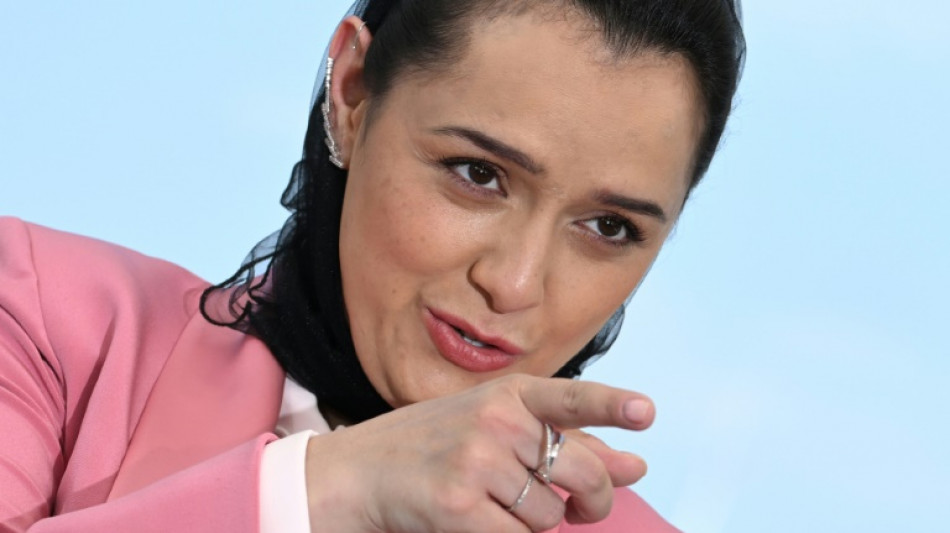

Iran film rules are 'extreme and tedious': director at Cannes
Saeed Roustaee is only 32 years old but already looks to be joining the ranks of world-class Iranian directors, despite severe restrictions imposed by the country's Islamic authorities.
"Leila's Brothers", a rich and complex tale of a family struggling to fight their way out of poverty in Tehran, has earned Roustaee a slot in the competition for the Palme d'Or at the Cannes Film Festival.
That does not guarantee him the respect of censors back in Iran, however, where it is still unclear if they will approve the film's release.
"In Iran, there are red lines -- plenty of them," Roustaee told AFP in Cannes.
"Getting a permit to shoot is a very extreme, tedious and long process. Then you need another permit to release the film theatrically and in this process, of course there is censorship."
- 'Everybody knows' -
The film follows four unemployed brothers and their exasperated sister as they try to pull themselves out of poverty -- their efforts undermined by their father's desire to spend lavishly on a wedding to impress his wealthier relatives.
The damage caused by US sanctions under President Donald Trump serves as a backdrop to the story, which finds moments of family love and humour amid the hardship.
Leila is played by one of Iran's most feted actresses, Taraneh Alidoosti, who said the character represented a familiar figure in the country.
"She is the pillar of the family, but an invisible one... someone sacrificing her all so her brothers can have a better life. In Iran, everyone knows that kind of woman in their family or neighbourhood," she told AFP.
Alidoosti made headlines in 2017 when she boycotted the Academy Awards over Trump's call to stop issuing visas to people from Muslim countries (she starred in "The Salesman" that ultimately won the Oscar for best foreign-language film that year).
The actress is just as tough about the situation in her own country, joining a petition last month against "systematic" sexual harassment in the Iranian film industry.
"Many basic human rights are violated in Iran and that's something that everybody knows even if they don't talk about it," she told AFP.
But she said Iranians' culture of celebrating the arts meant it was impossible to suppress its cinema.
"Cinema never faded away even under all the censorship. Sometimes it was rough, sometimes easier -- but it's always held its style," she said.
- 'Grabs the audience' -
Roustaee already gained international renown last year with his film "Just 6.5", an uncompromising look at Iran's drug problem and the brutal, and fruitless, police response.
His new film looks set to bring him further success. Despite its very long running time of 2h45, "the film grabs the audience from the very first scenes and doesn't let go," said France's Le Figaro.
It is one of two Iranian films competing for the Palme d'Or, following "Holy Spider" about a serial killer "cleansing" the holy city of Mashhad of prostitutes. It was shot in Jordan as Iran refused permission to film.
Iran has an illustrious cinematic history, including past masters such as Abbas Kiarostami (who won the Palme in 1997) and Asghar Farhadi, who has twice won the Oscar for best foreign language film and is serving on the Cannes jury this year.
The awards will be announced in Cannes on Saturday.
E.Steiner--HHA



